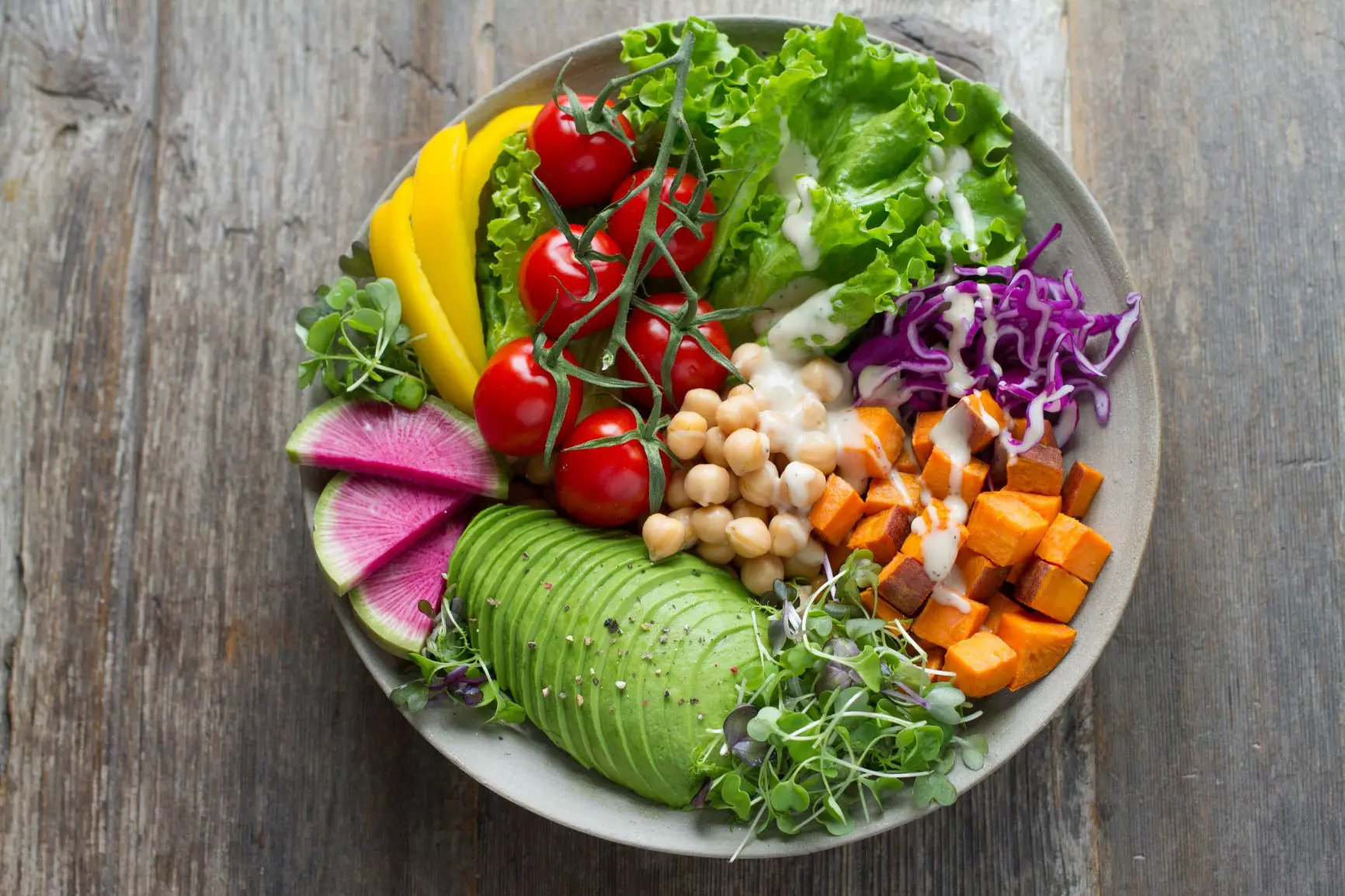Plant-based and vegan diets are getting more and more popular.
Vegan diets are very healthy and are very helpful with weight loss and weight control. Following a plant-based diet can be nutritionally healthy for many people, but a vegan diet is a bit more restricted. Depending on your body type and exercise intensity, if you are following a nice vegan diet, you have to make sure that you focus on balancing your diet with all the specific nutrients that vegan people tend to get depleted of to help support your physical health. For People who do regular training or intense exercise it can lead to some suppressed immune function by increasing natural killer cells and neutrophil function. This impact on the immune system can increase the risk of bacterial infection, which can also cause some illnesses. On the other hand, if your vegan diet is well balanced, then your well-planned vegan diet will be highly beneficial to help nourish the body with plant-based foods. Many ultra-runners and athletes following a balanced-vegan diet, see a great increase in their performance and energy level, faster recovery and overall well-being. Vegan people need to focus on seven primary nutrients, vitamins and minerals that are often lower in plant-based diets.
Vegan Primary Nutrients, Vitamins and Minerals
- Protein: This nutrient is a vital part of an athlete’s diet or even more sedentary people, to help with muscle recovery and energy, and body refuelling. Often people following a vegan diet tend to feel hungrier. Not eating any animal foods makes it a bit more challenging to include enough protein with all the required amino acids. The recommended option to eat enough plant-based protein nutrients and amino acids, is to include a great variety of plant-based protein foods in your daily diet.
Protein-Rich Food Sources
Tempeh
Tofu
Nuts and Seeds
Hemp seeds, flour
Beans
Legumes
Soy
Unsweetened soy milk or almond milk
Plant-based protein powder
- Healthy Fat: This nutrient is crucial for our body to absorb certain nutrients, help with recovery, have anti-inflammatory properties, help reduce the hunger and provide some energy for training. Omega-3 fatty acids are beneficial nutrients for anti-inflammation and help speed up repair of soft tissue damage and recovery.
Healthy Fat Food Sources
Extra virgin oil
Avocado oil
Avocado
Flax seed meal, oil
Hemp seeds, Hemp seed oil
Chia seeds
3.Iron: Adequate iron intake is critical for runners, especially long-distance or intense training. Iron is used to transport oxygen to muscles, often after running long-distance races our body gets depleted of several vitamins and minerals including iron. Women athletes have higher issues of iron deficiency. Without enough iron our muscles feel weak, our breathing is challenging, especially when running uphill. To sustain the iron absorption, you need to include some high vitamin C foods with the high iron foods.
Iron-Rich Foods Sources
Green leafy vegetables- Spinach, kale, Swiss chard
Beans
Legumes
Tofu
Tempeh
Vegetables- Tomatoes, potatoes, mushrooms, broccoli
Fruits- Prunes, olives, mulberries
4.Calcium: Calcium is essential for bone health and muscle function. Including calcium-rich foods in your daily diet is important. Some plant-based calcium-rich foods also contain components such as oxalic or phytic acids which can reduce the ability of the body to absorb the calcium (spinach and soy beans) When you eat these foods, ake sure you include other calcium-rich foods in your meal.
Calcium-Rich Food Sources
Green leafy vegetables
Nuts- Almonds
Seeds- Sesame seeds
Figs
5.Vitamin D: These days up to 80% of the population is depleted of vitamin D. This vitamin is necessary for bone health, calcium absorption and muscle function, as well as energy levels. Runners and athletes following a strict vegan diet might consider being tested for vitamin D deficiency, to see if adding a vitamin D supplement is required. Most of the vitamin D rich foods are animal based.
Vitamin D-Rich Foods
Mushrooms
Unsweetened soy milk
6. Vitamin B12: This vitamin is necessary for DNA synthesis and nervous system function. Once our body is depleted of vitamin B12 the side effects include neurological damage and increased risk of heart disease. Vitamin B12 sources are only found in animal-based foods. It is important for people following a vegan diet to include some daily vitamin B12 supplements.
7. Iodine: Due to today’s soil depletion, most plant-based foods are very low in iodine, which is necessary for the thyroid function. According to some research, 80% of vegans tend to be deficient in iodine. A good option is to take a multi vitamin that contains iodine and other vitamins and minerals as a good back up.
Iodine-Rich Food Source
Seaweed
Final words
When following a vegan diet, make sure you focus on including foods and supplements containing all the vitamins and minerals vegans tend to get depleted of to support an overall health. A healthy vegan diet will have many benefits in terms of providing antioxidants, faster recovery, and reducing the risk of chronic disease.


